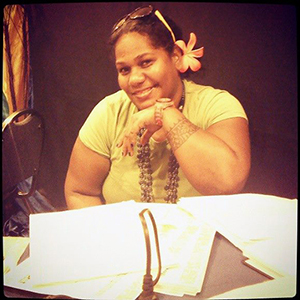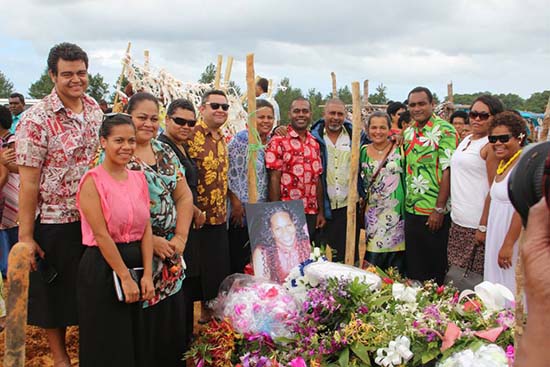Alistar Kata
AUCKLAND (Pacific Media Watch): The tragic death of Fijian journalist and gender issues advocate Losana McGowan at Easter has left her colleagues in mourning.
Fiji Women’s Rights Movement programme director Tara Chetty describes McGowan as someone who was diligent in her work.
"Even as a student journalist, she was very diligent, very reliable because she was very interested in the work, very interested in other people, very interested in talking with people," Chetty told Pacific Media Watch.
A former teacher of McGowan and Victoria University senior lecturer in Pacific studies, Dr Teresia Teaiwa, has reflected on the student she remembers.
 "When I think of her, I think of her as part of this really vibrant cohort of students that asked a lot of questions, that were really critical, engaged and just really exciting thinkers."
"When I think of her, I think of her as part of this really vibrant cohort of students that asked a lot of questions, that were really critical, engaged and just really exciting thinkers."
With the coverage of her death in the media, Chetty believes more work is needed to educate the public on violence against women.
McGowan’s partner, Usaia Kilaverata, was due to appear in the High Court in Suva today charged over her death.
"There’s been strong attention to the case, which has been good, but I think that probably there needs to be a lot more follow up in-depth work done," Chetty said.
Gender violence
"There needs to be further work linking how we can now address the broader issues of violence against women, gender-based violence that Losana’s death has thrown up for us as a community."
A 2013 report published by the Fiji Women’s Crisis Centre (FWCC) showed alarming figures for violence against women and girls in Fiji.
Chetty gave an overview of some of the figures.
"On a daily basis, there’s one woman who is permanently disabled, 43 women who are injured and 71 who lose consciousness as a result of intimate partner violence," she said.
"So you think about that happening somewhere today in our quite small country with our quite small population, then you realise the scale and extent of the problem that we are facing."
Dr Teaiwa said the media plays a role in changing the norms of domestic abuse, a change from having non-government organisations doing the work.
"The good thing is is that the media does seek out comment from NGOs like the Fiji Women’s Crisis Centre, but I think there is space for the media to raise a few more questions."
The difficulty in changing these attitudes, Dr Teaiwa believes, comes with tackling domestic violence as a taboo subject.
"So what we’ve got is this normalisation of family violence, intimate partner violence is just considered a norm. In the Solomon Islands we hear the statistics are 64 percent of women experience violence,", she said.
"When Losana was killed, [Fiji Women's Crisis Centre director] Shamima Ali raised the same statistics for Fiji and she said the statistics were 64 percent in Fiji"
"That’s over half the population of women in a country have experienced violence in their lifetime."
Both Chetty and Dr Teaiwa hope McGowan’s tragic story can spark change and "reinvigorate" focus and discussion on women's abuse in Fiji.
Fiji Sun republication of this article
International Federation of Journalists report on Pacific gender violence
Fiji Women's Crisis Centre report on women's health and life experiences in Fiji

This work is licensed under a Creative Commons Attribution-NonCommercial 3.0 New Zealand Licence.




